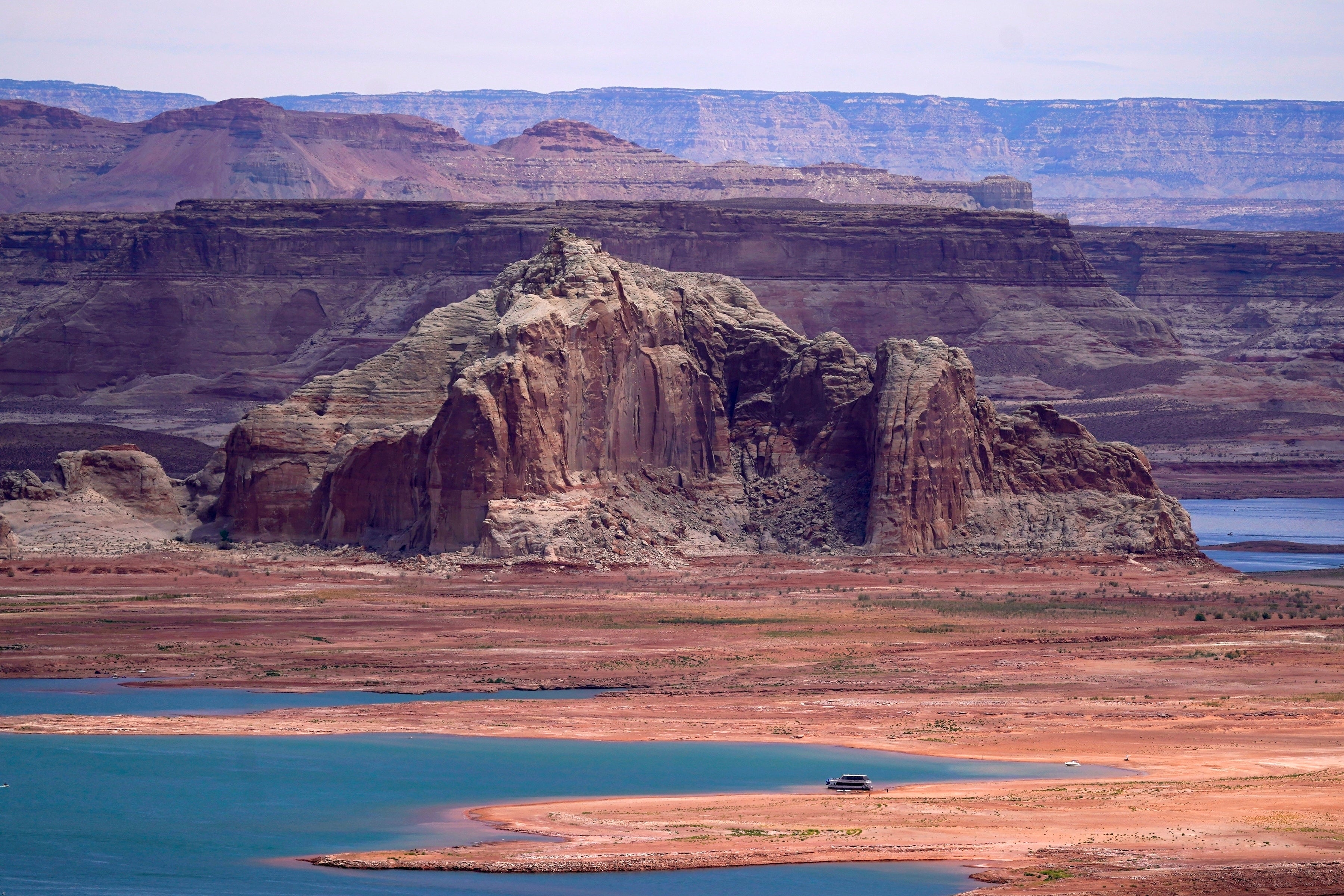Haaland: 16 tribal water settlements will get $1.7 billion
The Biden administration will use $1.7 billion from the recently enacted federal infrastructure bill to fund 16 tribal water rights settlements

Your support helps us to tell the story
From reproductive rights to climate change to Big Tech, The Independent is on the ground when the story is developing. Whether it's investigating the financials of Elon Musk's pro-Trump PAC or producing our latest documentary, 'The A Word', which shines a light on the American women fighting for reproductive rights, we know how important it is to parse out the facts from the messaging.
At such a critical moment in US history, we need reporters on the ground. Your donation allows us to keep sending journalists to speak to both sides of the story.
The Independent is trusted by Americans across the entire political spectrum. And unlike many other quality news outlets, we choose not to lock Americans out of our reporting and analysis with paywalls. We believe quality journalism should be available to everyone, paid for by those who can afford it.
Your support makes all the difference.The Biden administration will use $1.7 billion from the recently enacted federal infrastructure bill to fund 16 tribal water rights settlements, U.S. Interior Secretary Deb Haaland announced Tuesday.
The money will ensure that tribes get access to water they've been promised but have been unable to use because of a lack of funding for infrastructure to store and move it.
“I am grateful that tribes, some of whom have been waiting for this funding for decades, are finally getting the resources they are owed,” Haaland said in a statement during a trip to Arizona, where she announced the funding.
Access to reliable, clean water and basic sanitation facilities on tribal lands remains a challenge for hundreds of thousands of people. The funding for settlements is part of about $11 billion from the infrastructure law headed to Indian Country to expand broadband coverage, fix roads and provide basic needs like running water.
The U.S. Supreme Court ruled in 1908 that tribes have rights to as much water as they need to establish a permanent homeland, and those rights stretch back at least as long as any given reservation has existed. As a result, tribal water rights often are more senior to others in the West, where competition over the scarce resource is fierce.
Litigation can be expensive and drawn-out, which is why many tribes have turned to settlements. The negotiations generally involve tribes, states, cities, private water users, local water districts and others and can take years if not decades to hash out.
Nearly 40 water rights settlements have been reached with tribes, some of which include more than one tribe. The Interior Department said 31 of the settlements are eligible for funds from the infrastructure bill. Altogether, the infrastructure bill included $2.5 billion for water rights settlements in the coming years.
The settlements receiving funding this year are: Aamodt Litigation Settlement (Pueblos of San Ildefonso, Nambe, Pojoaque, and Tesuque), Blackfeet Nation, Confederated Salish and Kootenai Tribes, Crow Nation, Gila River Indian Community, Navajo-Utah Water Rights Settlement and Navajo-Gallup Water Supply Project, San Carlos Apache Nation, Tohono O’odham Nation, and White Mountain Apache Tribe.
Last week, a group of Democratic senators from Western states wrote a letter calling on Senate leaders to include $616 million for drought and agricultural assistance in an upcoming appropriations bill. The senators from California, Oregon and Arizona noted that Colorado River flows are expected to continue to decline in coming decades, threatening a crucial water resource for seven states.